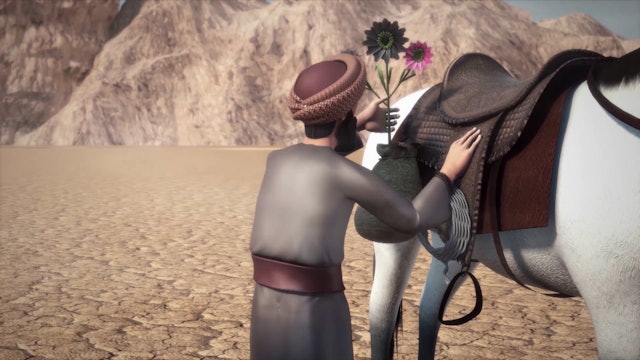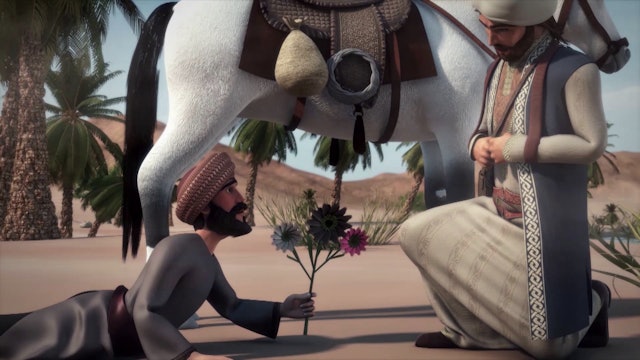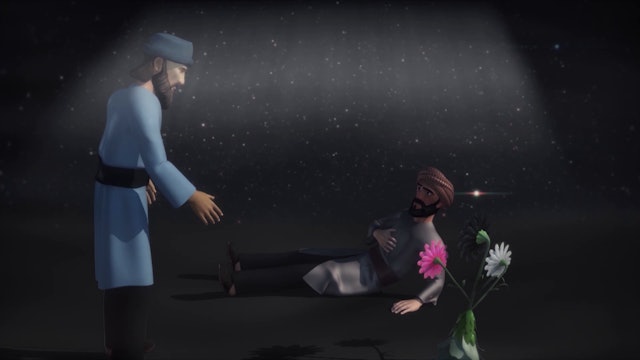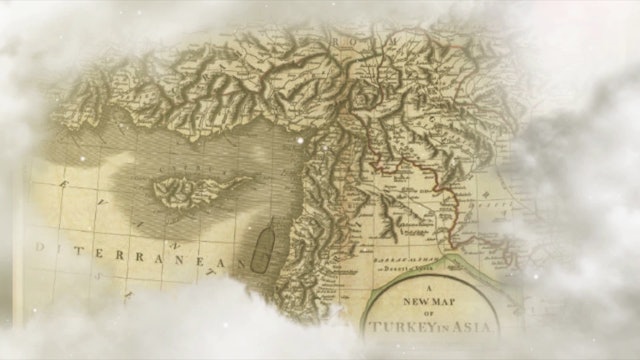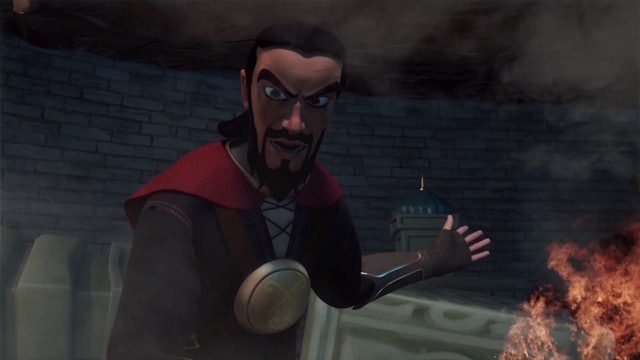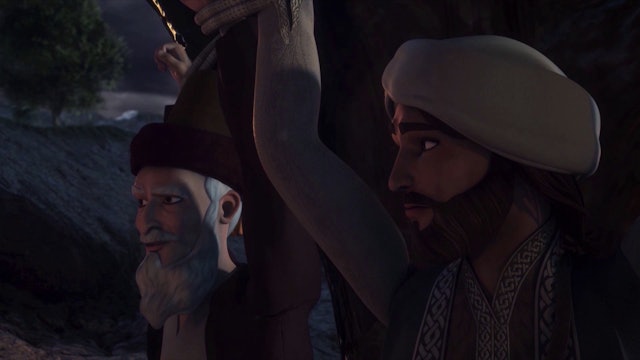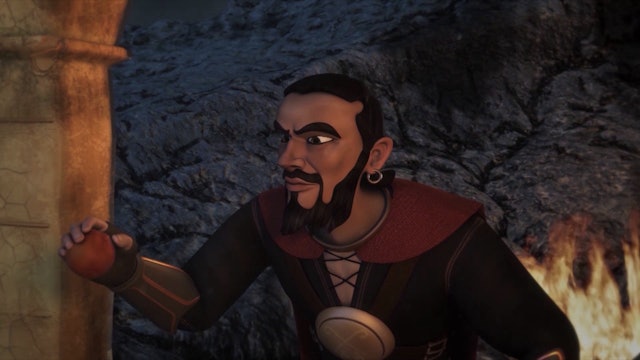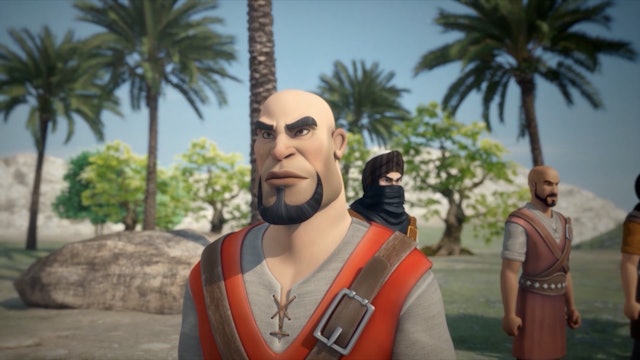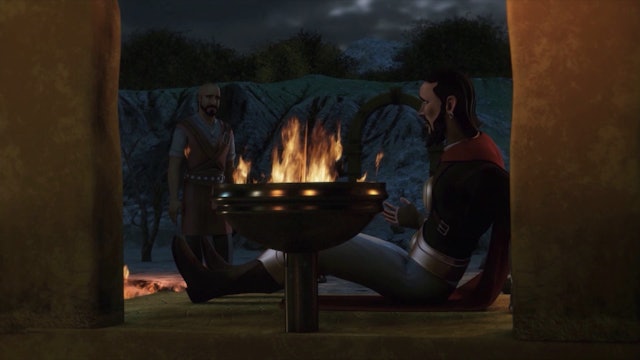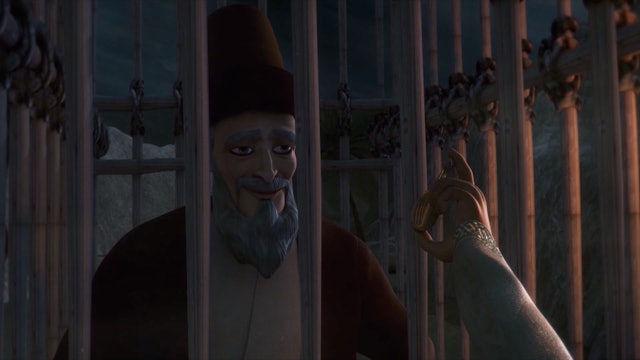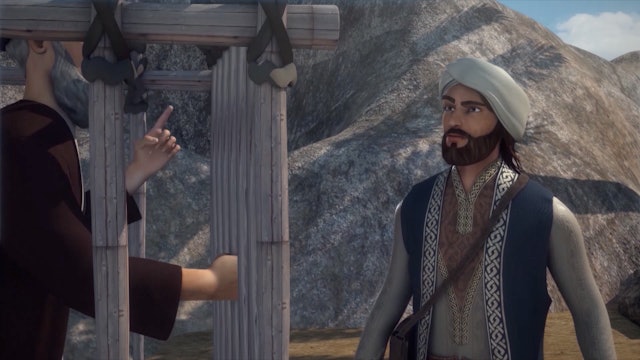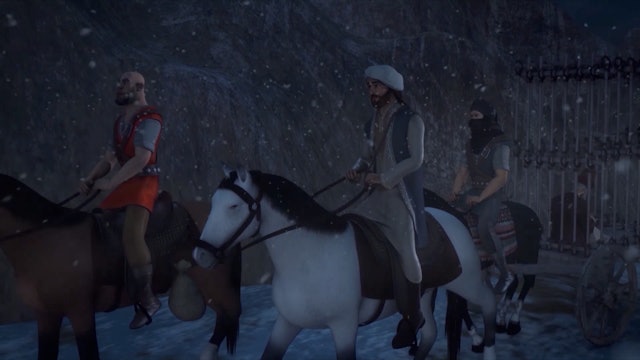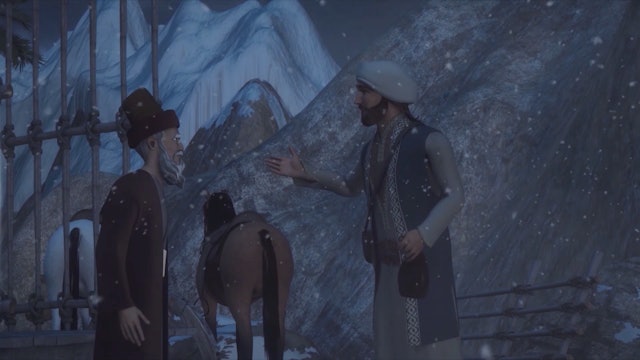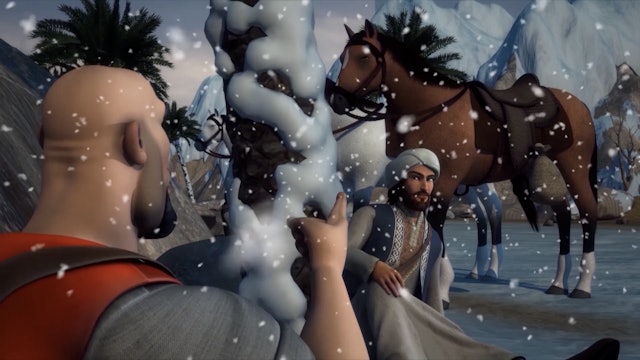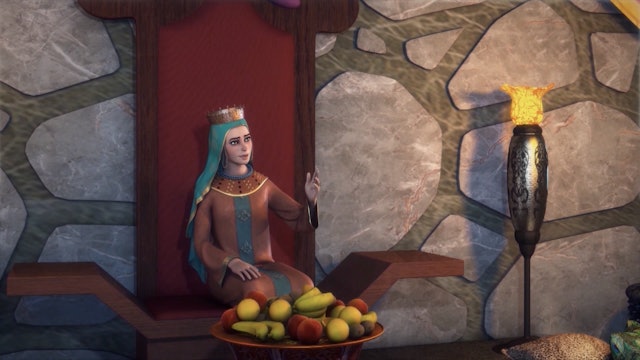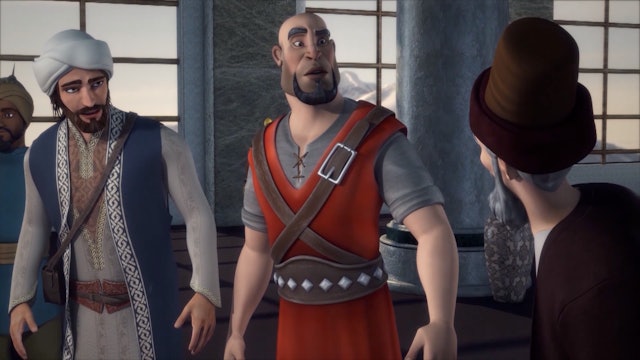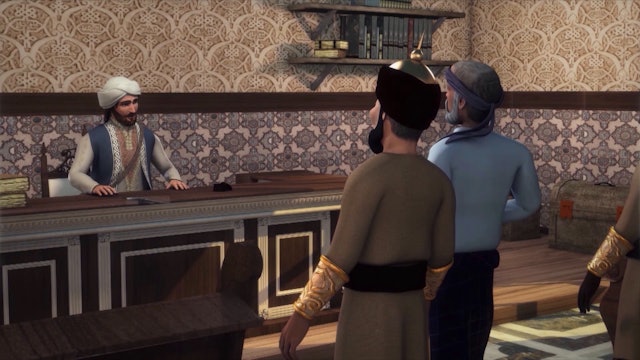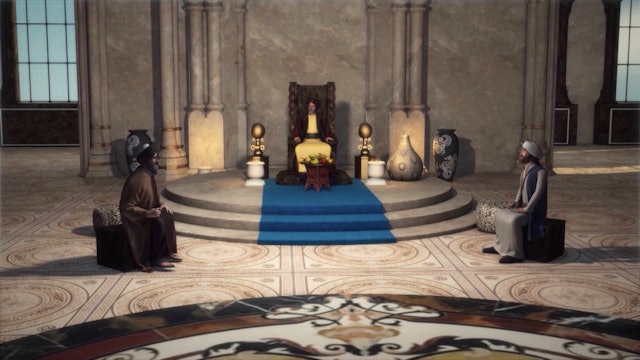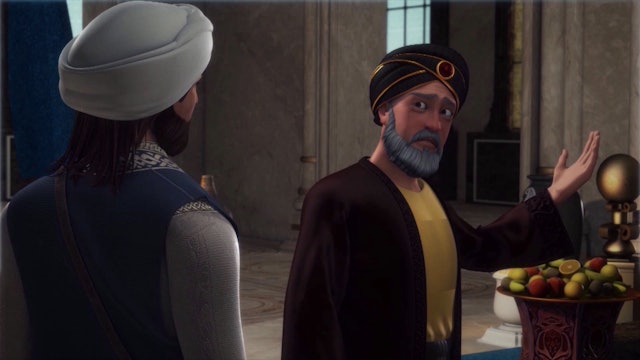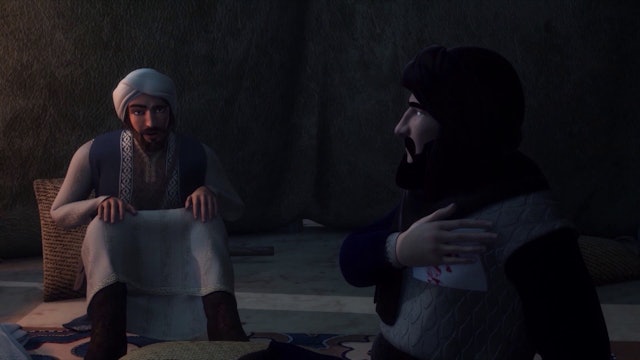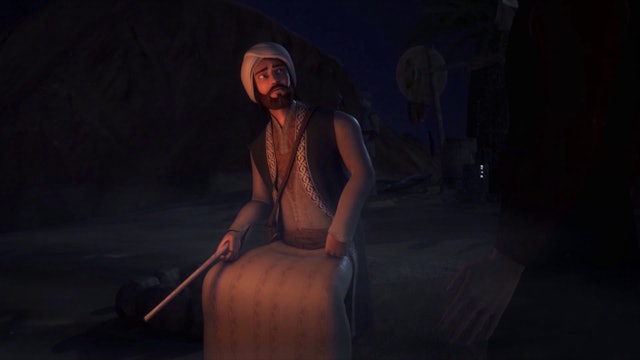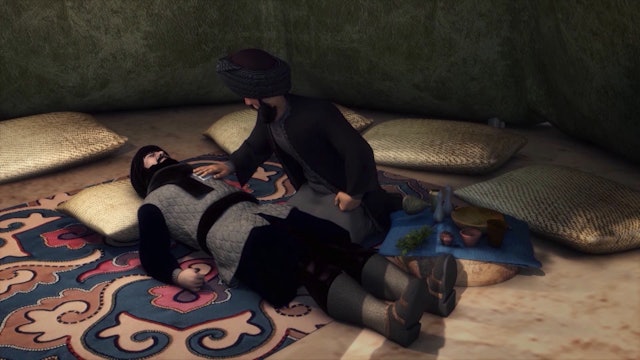-
Episode 1: Son of Tengier
Ibn Batutta is searching for the cure for the Black plague, so he can continue his journey with Salahuddin.
-
Episode 2: The Flower
While continuing their journey, Solomon becomes paralyzed due to the Black plague and asks Ibn Batutta to help him, but they come across a mirage that shows them a great water oasis.
-
Episode 3: A Door That Cannot Be Opened
Ibn Battuta and his companion are both stuck in a dream state where they must figure out a riddle in order to receive the cure from the Unique Flower.
-
Episode 4: The Road
Ibn battuta and Suleman solved the three riddles and were cured of the plague that almost paralyzed them both, Afterwards, Ibn Battuta heads to the Byzantine Empire.
-
Episode 5: City of Antalya
When Ibn Battuta arrives, he is given a tour of the city and is shown where all the business and commerce takes place, and what the shopkeepers specialize in.
-
Episode 6: Olympus
Ibn Battuta and Shams find themselves in a predicament, they are tied to a wooden post while the Leader threatens them, but Ibn Battuta uses his wits to get himself and Shams out of the situation.
-
Episode 7: Test of the Scorpion
Ibn Battuta continues to fool the so-called "glorified master" so he and Shams can get rid of these charlatans.
-
Episode 8: Deception
Ibn Battuta is being deceived by the evil builders, they had him burn down the Sheikh's house whom he respected, but to gain their trust, Ibn Battuta unwillingly burns the Sheikh's house down.
-
Episode 9: Constantinople
Under the Builder's order, Ibn Battuta and the builder go to Constantinople, to do the bidding of the Build Master who is deceiving Ibn Battuta for his own gain.
-
Episode 10: Duality
Malik is starting to lose his grip on reality and begins to panic, he tells his servant to let Ibn Battuta know that he must finish the task Malik gave him quickly. Meanwhile, Malik is being tormented by his evil self.
-
Episode 11: Escape
Ibn Battuta uses the sleep-inducing perfume on the guards and finds the Sheikh, he brings him some food and sustenance while thinking of a way to break him out while deceiving Malik.
-
Episode 12: Grand Khatun's Ring
Malik's loyal lapdog begins to suspect Ibn Battuta of deception and starts being very skeptical of him.
-
Episode 13: Shadow Versus Light
Mehetab and Ibn Battuta start traveling during cold snowy nights, despite it being very difficult to travel in these conditions but Mehetab is suspecting Ibn Battuta's actions and doesn't trust him and only wants to please Malik.
Meanwhile, Malik is having a Good versus Evil crisis. -
Episode 14: Convergence
During the night, Ibn Battuta goes to the Sheikh's cell and begins his plan of escaping and putting an end to Malik's scheme.
-
Episode 15: Arrival
Mehetab teases Ibn Battuta about the Sheikh, saying that he will not be able to survive because he doesn't have his help. Ibn Battuta continues to play ignorant so that Mehetab does not suspect him of treason.
-
Episode 16: Downfall
The Sheikh finally arrives at Constantinople and is helped immediately by the guards, receiving food and care. He wants to talk to the Grand Khatun as soon as he gets there.
-
Episode 17: Grand Khatun's Palace
The Sheikh tells the Grand Khatun the plot of Malik trying to take the Khatun's ring for themselves. The Khatun is well aware of this threat and proposes a plan to dispose of Malik and his followers.
-
Episode 18: Judgement
After the ordeal with Malik, Ibn Battuta finds a small town in need of help and guidance, so he becomes a local judge.
-
Episode 19: Delegation
As the newly appointed judge by the Sultan, Ibn battuta handles a situation where a man is suffering from loneliness and ends up taking the wrong actions in order to alleviate it. Ibn battuta teaches the man a powerful lesson.
-
Episode 20: Caliph
The Sultan seeks the wisdom of Ibn battuta, but they are interrupted by the Caliph.
-
Episode 21: Pacifist
Ibn Battuta goes to the Sultan to let him know that he will go to the garden and help with the Sultan's problem. Ibn Battuta will head to the Himalayan mountains.
-
Episode 22: Negotiator
Muhammad bin Tughluq was renowned as the wealthiest man in the Muslim world. He patronized various scholars, Sufis, qadis, viziers, and other functionaries to consolidate his rule. On the strength of his years of study in Mecca, Ibn Battuta was appointed a qadi, or judge, by the sultan.
-
Episode 23: Indus Valley
Ibn Battuta and his party reached the Indus River, from there he made his way to Delhi and became acquainted with the sultan, Muhammad bin Tughluq.
-
Episode 24: Greed
Ibn Battuta is assaulted because he is the only one who knows where the supplies are and the others are getting restless and losing their patience.


